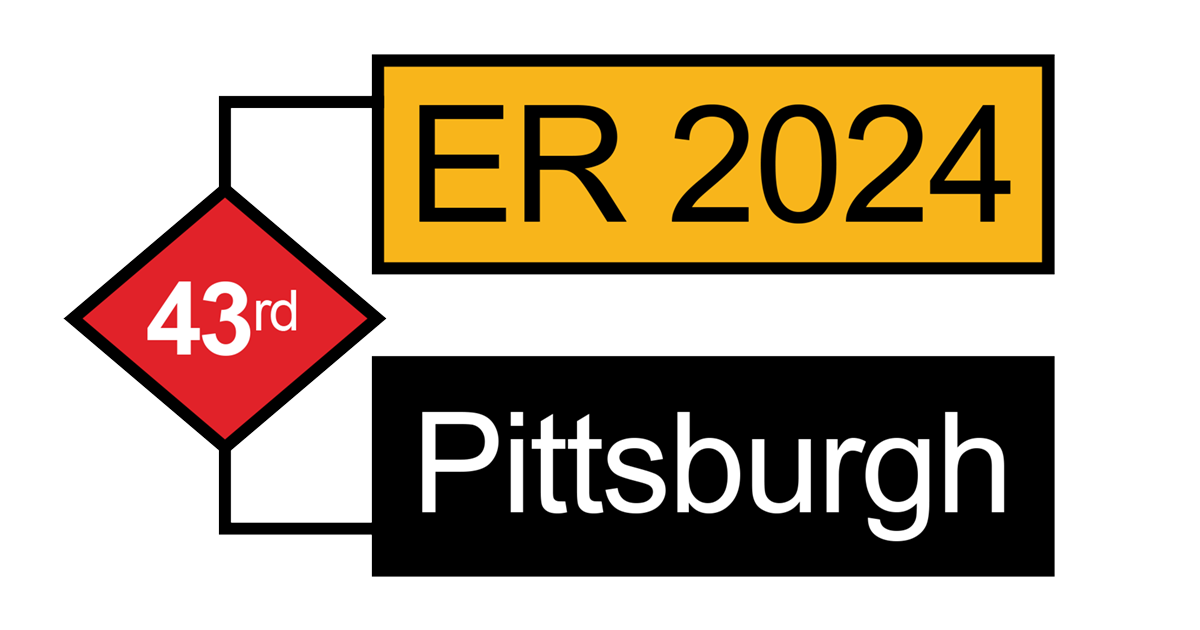Call for Papers (Closed)
Conceptual Modeling, AI, and Beyond
As AI and ML reshape technology, they're also revolutionizing conceptual modeling. We call for papers exploring this change, particularly how AI and ML integrate with and expand conceptual modeling. Submissions should cover established topics like modeling languages, theories, and methods, as well as AI/ML's novel contributions to the field. We encourage papers that push the boundaries of conceptual modeling and demonstrate AI/ML's transformative effects. Contributions should reflect the current state and forecast the future of conceptual modeling, setting the stage for pioneering research. We also invite industry reports, vision papers, and additional “hackathon” papers.
Important Dates
All deadlines are 23:59 AoE (Anywhere on Earth)
Full paper abstracts submission (mandatory)
26 May 2024
[previously 19 May]
Topics of Interest (Not Limited to the Following)
Foundations of conceptual modeling
- Automated and AI-assisted conceptual modeling
- Complexity management of large conceptual models
- Concept formalization, including data manipulation languages and techniques, formal concept analysis, and integrity constraints
- Domain-specific modeling
- Discovery of models, (anti-)patterns, and structures
- Evolution, exchange, integration and transformation of models
- Justification and evaluation of models
- Logic-based knowledge representation and reasoning
- Multi-level and multi-perspective modeling
- Ontological and cognitive foundations
- Quality paradigms and metrics
- Semantics in conceptual modeling
- Theories and methodologies for conceptual modeling
- Verification and validation of conceptual models
Conceptual modeling in
- Business, climate, compliance, economics, education, energy, entertainment, government, health, law, sustainability, etc.
- Collaboration, crowdsourcing, games, and social networks
- Engineering, such as agile development, requirements engineering, reverse engineering
- Enterprises, including the modeling of business rules, capabilities, goals, services, processes, and values
- Ethics, fairness, responsibility, or trust
- Digital twins, fog and edge computing, Industry 4.0, internet of things
- Information classification, filtering, retrieval, summarization, and visualization
- Scientific data management, including FAIR practices
Conceptual modeling showcased by
- Computational tools that advance the state-of-the-art
- Empirical studies
- Experience reports of applications, use cases, and real-world impact
Submission Guidelines
Submit papers via EasyChair for ER 2024 to the “ER 2024 Full Papers” track.
Since the proceedings will be published by Springer in the LNCS series, authors must submit manuscripts using the LNCS style or Overleaf. The page limit is 16 pages (excluding references). Papers will be judged on contribution, literature basis, novelty, clarity, relevance, and rigor. Other types of submissions include: workshops, posters, forum papers, project exhibitions, and hackathon proposals. The review process is double-blind. Submissions must be anonymized.
Post-Conference Special Journal Issue
The authors of selected papers will be invited to prepare a substantially revised and extended version to a special issue in Elsevier’s Data & Knowledge Engineering.

